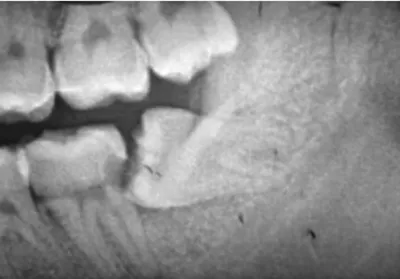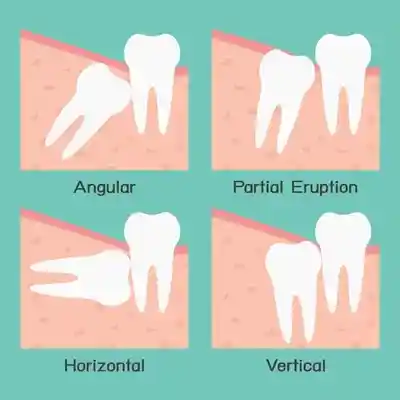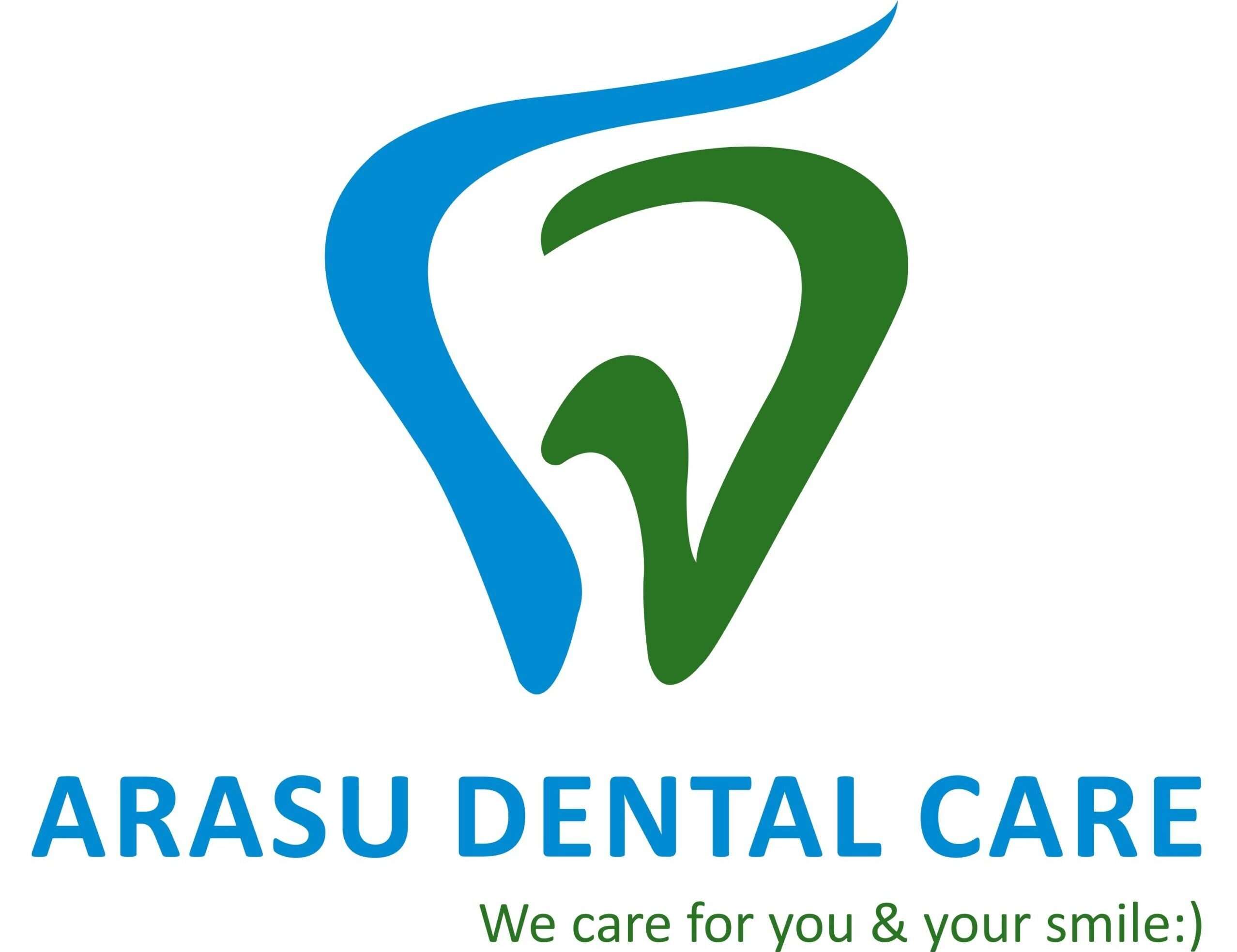WISDOM TOOTH REMOVAL IN RACECOURSE, COIMBATORE
PAINLESS IMPACTION WISDOM TOOTH REMOVAL IN COIMBATORE

Wisdom tooth removal, also known as third molar extraction, is a common dental procedure where one or more of the four third molars, commonly known as wisdom teeth, are removed from the back of the mouth. Wisdom teeth are the last teeth to emerge, usually during the late teens or early twenties, and often do not have enough space to fully erupt or grow properly, leading to various dental problems.
Here are some general information and considerations about wisdom tooth removal:
- Reasons for Wisdom Tooth Removal: Wisdom teeth may need to be removed for various reasons, including impaction (when the tooth does not fully emerge from the gum line), overcrowding, misalignment, decay or gum disease, formation of cysts or tumors, or if they are causing pain or discomfort.
- Consultation with an Oral Surgeon or Dentist: If you are experiencing pain or discomfort related to your wisdom teeth, or if your dentist has recommended their removal, you should consult with an oral surgeon or dentist who will perform a thorough examination, which may include X-rays or other imaging to evaluate the position and condition of your wisdom teeth.
- Pre-operative Preparation: Before the surgery, your oral surgeon or dentist will provide you with instructions on how to prepare for the procedure, which may include avoiding food or drink for a certain period of time prior to the surgery, stopping certain medications, and arranging for transportation to and from the oral surgeon’s office or dental clinic on the day of the procedure.
- Anesthesia Options: Wisdom tooth removal can be performed using local anesthesia (numbing only the area around the tooth) or sedation anesthesia (where you are asleep during the procedure). The choice of anesthesia will depend on the complexity of the case, your level of anxiety, and the recommendation of your oral surgeon or dentist.
- The Surgical Procedure: The actual surgical procedure may involve cutting through the gum tissue to access the tooth, removing any bone that may be blocking access, and then extracting the tooth. In some cases, the tooth may need to be divided into smaller pieces for easier removal. Stitches may be used to close the incision, which may dissolve on their own or need to be removed later.
- Post-operative Care: After the procedure, your oral surgeon or dentist will provide you with instructions for post-operative care, which may include pain management, swelling reduction techniques, and proper oral hygiene. You may also be advised to stick to a soft or liquid diet for a few days and avoid certain activities like smoking or using a straw that can dislodge the blood clot or cause complications.
- Recovery Period: The recovery period after wisdom tooth removal can vary depending on the complexity of the extraction and the individual’s healing process. Most people experience swelling, bruising, and discomfort for a few days to a week after the procedure. It is important to follow all post-operative care instructions and attend any follow-up appointments with your oral surgeon or dentist.
- Potential Risks and Complications: As with any surgical procedure, there are potential risks and complications associated with wisdom tooth removal, including infection, dry socket (a painful condition where the blood clot that normally forms after extraction is dislodged or dissolves), nerve injury, damage to surrounding teeth, jaw stiffness, or allergic reactions to medications. However, these risks are generally low and can be minimized with proper pre-operative evaluation and post-operative care.
- Cost Considerations: The cost of wisdom tooth removal can vary depending on factors such as the complexity of the extraction, the type of anesthesia used, the geographic location, and the individual dentist or oral surgeon’s fees. It is important to check with your dental insurance provider and obtain a cost estimate from your oral surgeon or dentist before the procedure.
- Follow-up Care: It is important to attend any
FAQ – WISDOM TOOTH REMOVAL – SURGICAL TOOTH REMOVAL IN RS PU

WHEN SHOULD WISDOM TEETH BE REMOVED?
Wisdom teeth should be removed if they are causing pain, discomfort, or dental problems such as impaction, overcrowding, misalignment, decay, gum disease, or formation of cysts or tumors. Your oral surgeon or dentist will assess the condition of your wisdom teeth and recommend removal if necessary.
HOW LONG DOES IT TAKE TO RECOVER FROM WISDOM TOOTH REMOVAL?
The recovery period after wisdom tooth removal varies from person to person, but generally it takes a few days to a week for the initial healing process. Swelling, bruising, and discomfort may be experienced during this time. Following the post-operative care instructions provided by your oral surgeon or dentist can help speed up the recovery process.
IS WISDOM TOOTH REMOVAL PAINFUL?
The procedure itself is typically performed with local anesthesia or sedation anesthesia, so you should not feel pain during the surgery. However, some discomfort and swelling may be experienced during the recovery period. Your oral surgeon or dentist will provide you with pain management instructions and may prescribe pain medication to help manage any discomfort.
ARE THERE ANY RISKS OR COMPLICATIONS ASSOCIATED WITH WISDOM TOOTH REMOVAL?
As with any surgical procedure, there are potential risks and complications associated with wisdom tooth removal, including infection, dry socket, nerve injury, damage to surrounding teeth, jaw stiffness, or allergic reactions to medications. However, these risks are generally low and can be minimized with proper pre-operative evaluation and post-operative care.
CAN I EAT NORMALLY AFTER WISDOM TOOTH REMOVAL?
It is recommended to stick to a soft or liquid diet for the first few days after wisdom tooth removal to allow for proper healing. Avoiding hard, crunchy, or spicy foods that can irritate the surgical area is advisable. Your oral surgeon or dentist will provide you with specific dietary instructions based on your individual case.
WHAT SHOULD I DO IF I EXPERIENCE COMPLICATIONS AFTER WISDOM TOOTH REMOVAL?
If you experience any unexpected or severe complications after wisdom tooth removal, such as persistent bleeding, severe pain, infection, or difficulty breathing, you should contact your oral surgeon or dentist immediately for further evaluation and management. It is important to follow any post-operative care instructions and attend any scheduled follow-up appointments for proper monitoring and management of your recovery.
DO YOU HAVE SATISFIED PATIENTS FROM OTHER PARTS OF COIMBATORE?
Arasu Dental Care, One of the best Dental Clinic in Coimbatore has satisfied patients from
Race course, Ram nagar, Saibaba colony, Vadavalli, Thondamuthur, Veerakeralam, Gandhipark, Thadagam road, Gandhipuram, Ukkadam, Ganapathy, Saranavampatti, Town Hall, PN Pudhur and Peelamedu
